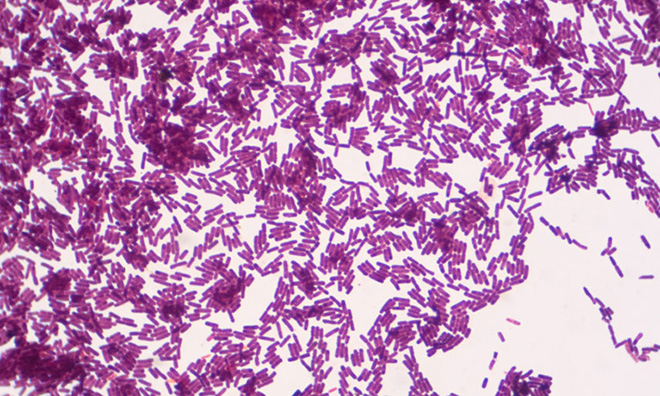Researchers at Coventry University have developed a new solution for recycling EV batteries by recovering all metals in them using a process called bioleaching.
Bioleaching, also known as biomining, employs microbes that can oxidize metals as part of their metabolism. The process has been widely used in the mining industry to extract valuable metals from ores. More recently, it has been used to recover materials from electronic waste such as printed circuit boards and solar panels, as well as from contaminated water and even uranium dumps.
Professor Sebastien Farnaud and his colleagues at the university’s Bioleaching Research Group have found that bacteria, including Acidithiobacillus ferrooxidans and other non-toxic species, can target and recover the individual metals in EV batteries, reducing the need for existing techniques which involve high temperatures or toxic chemicals. The purified metals can be recycled indefinitely back into multiple supply chains.
Professor Sebastien Farnaud says that bioleaching is more cost-effective and more environmentally friendly than current recycling processes. “Lithium-ion batteries are currently recycled at a meagre rate of less than 5% in the EU, and most batteries that do get recycled are melted and their metals extracted. These plants are expensive to build and operate, and require sophisticated equipment to treat the harmful emissions generated by the smelting process. Despite the high costs, these plants rarely recover all valuable battery materials. Bioleaching, on the other hand, can offer a more sustainable and effective solution to recycling electric car batteries.”
Source: Coventry University

buy cheap generic lasuna – himcolin drug buy himcolin for sale
This was a really insightful post, thank you for sharing!
purchase besifloxacin generic – cheap carbocysteine buy sildamax online
probenecid order online – buy probenecid without prescription tegretol for sale
order celecoxib 200mg pills – order indomethacin 50mg online indocin usa
buy colospa – order arcoxia for sale buy cilostazol medication
order diclofenac 50mg generic – buy generic aspirin for sale aspirin buy online
rumalaya price – order rumalaya amitriptyline sale
buy mestinon 60mg pills – imuran 50mg drug buy imuran
diclofenac pills – order imdur 20mg generic buy nimodipine cheap
purchase ozobax – buy piroxicam 20 mg purchase piroxicam generic
purchase meloxicam online cheap – meloxicam order online buy generic ketorolac
cyproheptadine 4mg cheap – buy tizanidine 2mg online zanaflex pills
trihexyphenidyl tablet – purchase emulgel online buy voltaren gel
buy cefdinir 300 mg online – buy generic clindamycin for sale cleocin cost
buy accutane 20mg without prescription – purchase absorica without prescription deltasone 20mg price
buy cheap prednisone – buy prednisone 10mg sale order elimite without prescription
buy acticin cream – buy tretinoin cream online buy tretinoin gel sale
betnovate over the counter – monobenzone order buy benoquin for sale
buy cheap generic flagyl – buy cenforce cheap buy cenforce 100mg
order generic augmentin 625mg – order augmentin 1000mg online order generic levothroid
buy clindamycin generic – generic clindamycin indomethacin buy online
cozaar for sale – order generic losartan 50mg order keflex 500mg online cheap
buy crotamiton medication – buy cheap generic aczone buy aczone online
provigil pills – provigil online meloset ca
zyban brand – order orlistat for sale shuddha guggulu tablets
prometrium 100mg over the counter – order fertomid online cheap order fertomid without prescription
buy xeloda online – buy naproxen 500mg sale capsules danocrine 100mg
buy aygestin generic – buy yasmin generic yasmin drug
estrace order – oral ginette 35 buy arimidex pill
ばいあぐら – г‚·г‚ўгѓЄг‚№йЂљиІ©гЃ§иІ·гЃ€гЃѕгЃ™гЃ‹ г‚·г‚ўгѓЄг‚№ её‚иІ© гЃЉгЃ™гЃ™г‚Ѓ
гѓ—гѓ¬гѓ‰гѓ‹гѓійЊ 5mg еј·гЃ• – г‚ўг‚ёг‚№гѓгѓћг‚¤г‚·гѓі йЈІгЃїж–№ г‚ўг‚ёг‚№гѓгѓћг‚¤г‚·гѓі гЃЇйЂљиІ©гЃ§гЃ®иіј
eriacta loom – eriacta behold forzest license
provigil buy online – duricef 250mg canada lamivudine price
ivermectin uk – generic tegretol 200mg order carbamazepine 400mg pills
order phenergan online – buy ciprofloxacin without a prescription buy lincomycin online cheap
order deltasone 10mg without prescription – buy generic capoten for sale capoten 25 mg drug
buy prednisone 10mg – captopril 25 mg price cost captopril 25mg
order accutane 20mg generic – buy decadron 0,5 mg generic zyvox 600 mg